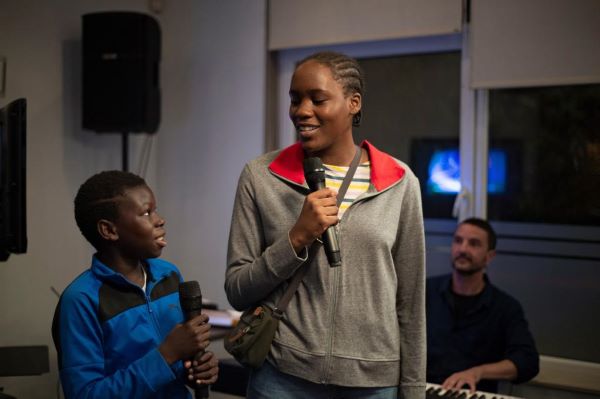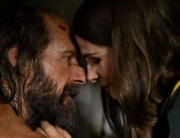A few days after the conclusion of the Cannes Film Festival, the celebration of global cinema already felt like a distant memory. The overall grade for the programming across the board was middling, with few gems or surprises to be found in the official selections. The best films screened in the Directors Fortnight and the Critics’ Week sidebars: Fogo-Fátuo (Will-o’-the-Whisp), Revoir Paris (Paris Memories), and Aftersun. These three were fresh, vital, and on point. If viewers only sought the films that were in contention for the Palme d’Or, they would have been disappointed.
The festival’s Opening Night film, Michel Hazanavicius’s Coupez, has been described as a zombie comedy. To this reviewer, its selection felt like sloppy seconds; it was originally scheduled to premiere this past January at the 2022 Sundance Film Festival before that event went all-virtual because of the Omicron variant. Cannes really kicked off in high gear on the second day, Wednesday, May 18, with the long-delayed debut of Top Gun: Maverick. You didn’t have to be inside the Palais Lumiere to experience the fanfare: The French Air Force flew two flyovers with eight jets sprouting red, white, and blue fumes (either for France or the United States). It was an impressive, if not ostentatious, display of showmanship. Though for an event that prides itself for cutting back on carbon emissions, one wonders if the festival’s environmental efforts were in vain, eliminated in a few minutes. Also, considering there’s a war going on not so far away, the display of military might may not have conveyed the same celebratory message for all attendees.
This year marked the 75th anniversary of Cannes, and no other team of directors or style of filmmaking are as emblematic of what the festival has recently stood for than the Belgium directors Jean-Pierre and Luc Dardenne. It was appropriate that the Palme d’Or-winning brothers (Rosetta, L’Enfant), who rarely go away empty-handed, were honored with the Cannes 75th Anniversary Award for their new film, Tori and Lokita, one of their best in a decade. You know you’re watching a Dardenne film within the first five minutes, whether that’s because of the ubiquitous handheld camera or the strive for realism—they have a pseudo-documentary-based template that they don’t stray from. Though they haven’t broken new ground or taken any risks from the tried and true, they have proven once again they are among the most dependable of the festival’s club of favorites. However, in one way their new work largely departs from the Dardenne filmography: It turns into a startling thriller.
Scene by scene, Tori and Lokita’s story line credibly sets up the ominous circumstances in which 16-year-old Lokita (Joely Mbundu) and Tori (Pablo Schils), a boy of 11, are enmeshed—both actors make strong film debuts. Having met on the boat crossing to Europe, the two pose as siblings before immigration authorities. Tori, an orphan from Benin, already has papers to remain in Belgium. Lokita, from Cameroon, needs to convince authorities she is his sister by explaining exactly how she knew she had discovered her brother was living in an West African orphanage, even though she says she hadn’t seen him since he was a baby. If she fails the interrogation, she faces deportation.
At their refugee shelter, they rehearse the interview, with Tori asking likely questions. The duo make an inseparable team: performing songs at a pizzeria and delivering cannabis or cocaine under the guise of pizza deliveries for the restaurant’s controlling chef and low-rent Albanian drug lord, Betim (Alban Ukaj)—he takes their cell phones away when they make their rounds in case they are caught. (Phones play an important role here.) The extra money they earn goes to Lokita’s mother back home and to the threatening traffickers who brought Lokita to Europe.
The movie becomes engrossing as the pair confront two systems of exploitation, drug and human trafficking, as well as sexual abuse in Lokita’s case. Social issues hover in the background but don’t dominate. Without a doubt, this is a step up from the somewhat patronizing tone of The Unknown Girl, in which a White doctor tries to solve the murder mystery of a Black sex worker. The Dardennes’ previous film, Young Ahmed, was way too short to tackle substantially its story of a young boy’s attraction to radical Islamic fundamentalism. Here the powerful story is contained in 90 minutes, balancing grit with sentiment. If only more films at the festival were this concise and emotionally involving.







Leave A Comment